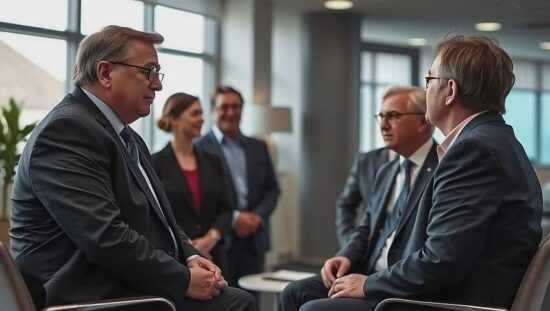A cautious opening for dialogue has emerged between Germany’s Left Party leader, Janine Wissler and CDU leader Friedrich Merz, but the prospect of substantive cooperation remains fraught with significant political hurdles. Wissler, speaking to “Politico”, signaled a willingness to engage with Merz, but only under strictly defined parameters focused on core issues of fiscal stability and local government funding. She explicitly stated that discussions would concentrate on reforming the “Schuldenbremse” (debt brake) and bolstering the financial resources available to municipalities.
However, the current political climate, Wissler argued, fundamentally obstructs any productive partnership. The Left Party leader delivered a pointed critique of the CDU’s recent policy direction, accusing the conservative party of adopting stances increasingly aligned with the far-right AfD. This, she asserted, was particularly evident in the CDU’s approach to migration policy and its commitment to austerity measures. “When the CDU acts as the AfD does – and that is precisely what it is currently doing – we will not support it” Wissler stated.
The remarks underscore a growing tension within German politics, as the CDU struggles to define its position and establish a clear boundary against the rising influence of the AfD. Wissler directly challenged the CDU’s stance, demanding clarification on where the party intends to draw its “firewall” against the far-right. She challenged the CDU to choose between collaborating with the AfD or actively seeking to build broad, democratic majorities.
Beyond the immediate political maneuvering, Wissler addressed the recent debate surrounding urban development, prompted by Merz’s comments. While acknowledging issues in the cityscape, she attributed the root of the problem to systemic poverty. “Yes, there is a problem in the urban landscape, but it primarily stems from the prevalence of poverty” she emphasized, subtly shifting the focus away from architectural criticisms and towards the underlying socioeconomic factors contributing to urban challenges. The potential for productive dialogue, while tentatively presented, remains contingent on a significant shift in the CDU’s direction and a commitment to address systemic inequalities.





